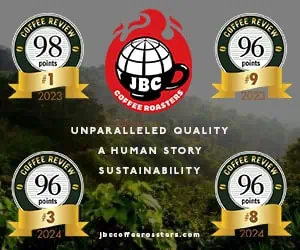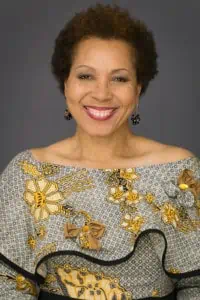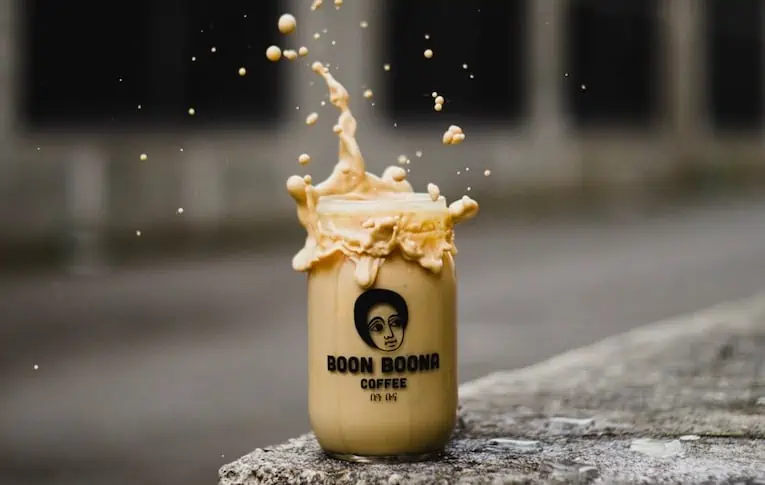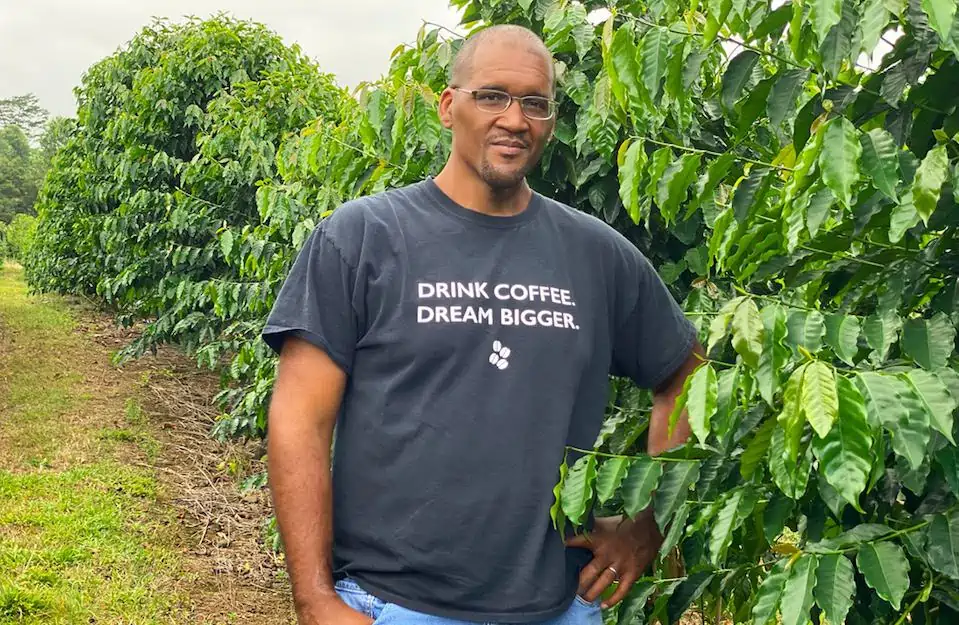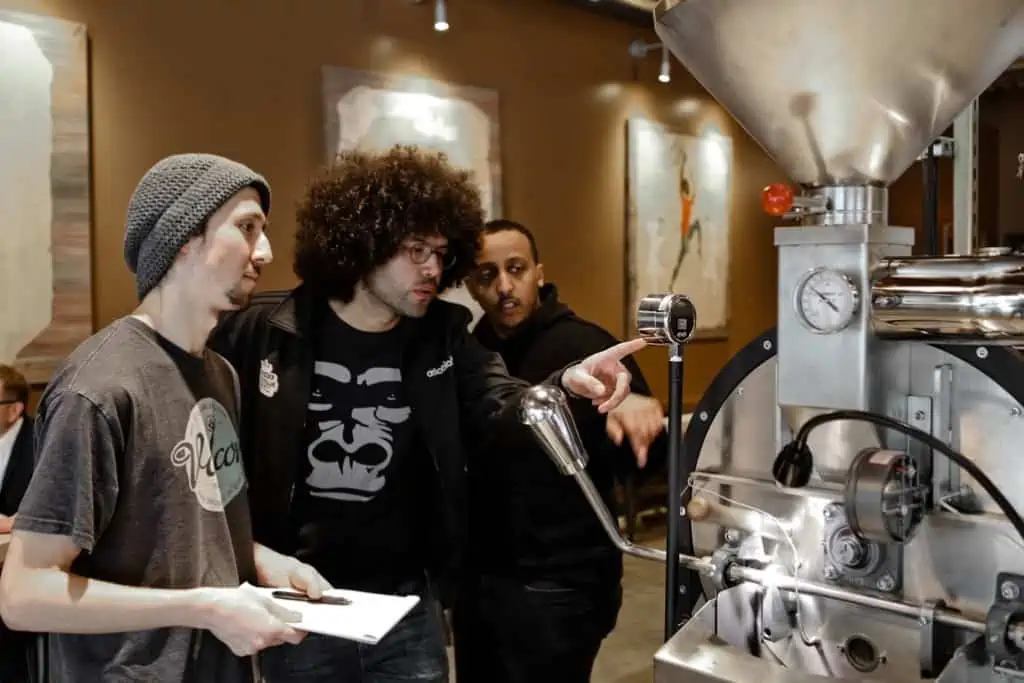
Roaster Alex Carlson; Direct of Coffee Ali Gulduren, and Owner Efrem Fesaha at Boon Boona Coffee in Renton, Washington. Photo by Jeriel Calamayan, courtesy of Boon Boona Coffee.
For new readers who may not be familiar with Coffee Review, we introduced the first-ever 100-point, wine-style coffee reviews to the specialty coffee industry in 1997. Our mission is to help consumers purchase superior quality coffees while recognizing and rewarding the farmers and roasters who produce these coffees.
Since our founding, Coffee Review has reviewed coffees in an objective, unbiased manner, with our ratings and descriptions based on tasting the coffee rather than starting with information about the coffee. This objectivity is critical for our credibility with consumers and industry professionals alike. For a more detailed explanation of our rating system and evaluation processes, read How Coffee Review Works. For more on our history, check out Reflecting on Two Decades of Coffee Review.
In short, we evaluate coffees on a blind basis, meaning we don’t know the details of the coffees we are tasting when we taste them. Our cuppers don’t know the race, gender, sexual orientation, or anything else about the people who farmed, imported, or roasted the coffees that appear on our cupping table. We evaluate coffees purely on their merit in the cup. Coffee Review is and always has been color blind when it comes to rating coffees.
Color Blind is Not Enough
As we mourned the tragic deaths of George Floyd, Breonna Taylor, Ahmoud Arbery, and Rayshard Brooks this spring; as the broader impacts of systematic racism became increasingly obvious to most; as millions of protesters across the United States and throughout the world demanded racial equality and social justice, all of us at Coffee Review felt the need to act, to make some contribution to change.
Like many well-intentioned companies, we issued a statement of unity with protesters. We made financial contributions to support several Black causes. However, it felt reactive and inadequate. We needed to take action or end inaction.
As we reflected more critically on what we might do to be part of the solution, we realized that, despite our concerted efforts to be objective and unbiased, we were guilty of a type of unconscious bias, not ON the cupping table but on getting everyone TO the cupping table. Sure, we’ve reviewed coffees from Black roasters, often not being aware of it. For example, in 2013, the No. 2 coffee in our inaugural Top 30 Coffee list, was roasted by BeanFruit Coffee Co., a Black-owned coffee company in Jackson, Mississippi. But, overall, it was clear to us that Black-owned coffee companies are underrepresented in our reviews.
One of our colleagues, Jason Sarley, raised the possibility of doing a tasting report that featured coffees from Black-owned coffee companies. We embraced the idea immediately.
I don’t normally write tasting reports for Coffee Review but I twisted Editor-in-Chief Kenneth Davids’ arm into letting me lead this effort. Of course, as a middle-aged white male who grew up in Connecticut and lives in Portland, Oregon, I’m not the right person to lead a conversation about race. I reached out to Phyllis Johnson, a black woman, respected coffee professional, founder of BD Imports, and an accomplished writer, speaker, and advocate for minorities and women, to see if she would be willing to help me.
I explained the concept for our report, which Phyllis embraced. I shared that we didn’t want the report to be “white folk writing about black folk.” After a brief and not quite silent chuckle that seemed to reflect equal parts “that’s refreshing self-awareness” and “oh my, we have some work to do,” Phyllis graciously agreed to share her expertise, perspective, and support for the project.
We also invited Phyllis to write a stand-alone companion article for our August report. Our reports generally focus on coffees and we felt our normal report format may constrain her ability to fully share her thoughts on what she thinks is important right now. We’re pleased to publish her article Two Centuries of Enslaved Labor: The Contributions of Blacks in the Early Americas Coffee Trade.
At the same time, we’ve maintained a high degree of consistency with our normal tasting report format. Our mission and approach have not changed, we’re simply pursuing it in a way that assures greater inclusion. As always, we strive to help consumers identify and purchase superior quality coffees, while recognizing and rewarding, in this case, the Black-owned coffee companies that roasted those coffees.
Co-Cupper Alicia Adams
On occasion, Coffee Review invites a co-cupper to join one of our cuppings to provide an expertise or a unique perspective. For our first-ever tasting report focused on roasted coffees from Black-owned coffee companies, we felt it would be important to invite a Black co-cupper to join us. Phyllis recommended Alicia Adams, a certified Q Arabica Grader and former Director of Coffee at Red Bay Coffee in Oakland, California. We are pleased the Alicia was able to cup with us.
14 Impressive Coffees Reviewed
For our August report, we contacted 33 Black-owned coffee companies, 19 of which submitted samples for the cupping. We cupped 44 coffees, all told, and reviewed the top 14, which scored a very impressive 92 to 95. In tribute to the theme of this cupping, we added a review at 90 for a quietly lovely coffee from Haiti, a rare origin on coffee menus today but one with a complex legacy that figures importantly in coffee’s history in the Americas.
No Origin Left Unroasted
Overall, the 19 submitting companies sent us an unusually broad array of origins. True, among them were nine Ethiopias, five Kenyas and five Colombias, all origins that frequently appear in our reviews. But we also received three coffees each from Honduras and Jamaica, two Tanzanias and two Ugandas, three blends, and one coffee each from Bali, Brazil, Burundi, Costa Rica, DR Congo, Guatemala, Haiti, Hawaii, Indonesia, Nicaragua, Sumatra, and Vietnam. Among the coffees we review here are four Ethiopias, two Kenyas, two Colombias, one Burundi, one Haiti, one Hawaii, one Nicaragua, one Sumatra, and one Tanzania. All of this origin enumeration is just to say that this report cupping was not entirely about the usual suspects, although Ethiopias do predominate.
A Burundi and a Rare Ethiopia Variety at 95
The two top-scoring coffees, both of which earned an impressive 95 points, are a classic Burundi — Boon Boona’s Burundi Karehe — and a rare variety, experimentally processed, from Ethiopia — Equiano Coffee’s Ethiopia Wush Wush Ginbo Keffa. This pair is a study in contrasts, the former coffee being balanced, richly sweet-tart with notes of dried mango and oolong tea, while the latter is a headily perfumed dessert-like coffee with notes of Jolly Rancher and lush narcissus.
Massachusetts-based JNP Coffee, owned by Burundi native Jeanine Niyonzima-Aroian, underwrites 100% of the International Women in Coffee Association’s (IWCA) coffee produced in Burundi. The Karehe Cooperative provides recognition to the women farmers whose labor has long gone unrecognized: JNP pays them directly based on the premium prices this high-quality coffee fetches in the global market. Niyonzima-Aroian met Washington-based Boon Boona’s head roaster Ali Gulduren at SCA 2019 in Boston, who excitedly shared these coffees with owner Efrem Fesaha, and an ongoing relationship was formed.
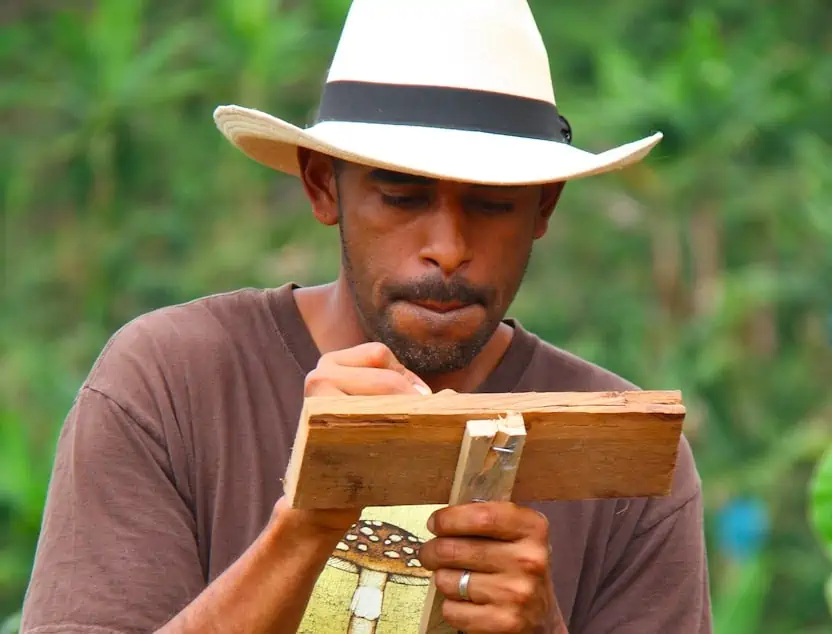
Okon Udosenata, owner of Equiano Coffee in Eugene, Oregon, at Finca Samaria in Colombia. Photo courtesy of Equiano Coffee.
Eugene, Oregon-based Equiano Coffee submitted the Wush Wush, a candy-like fruit bomb of a coffee processed by an unorthodox “anaerobic” method in which fermentation takes places in an oxygen-deprived environment, encouraging a range of wildly various fruit notes.
Three Ethiopias, a Colombia, and a Nicaragua at 94
Of the impressive Dávila Kafe Estelí Nicaragua (94), co-owner Gaïna Dávila says, “Our Estelí is cultivated in one of the lesser-known coffee growing regions in Nicaragua. In addition to being grown in volcanic soil, at 1,400 meters above sea level, this Maracaturra variety is a hybrid of Caturra and Maragogipe created by a Nicaraguan farmer. To Nicaraguans, this variety is as Nicaraguan as it gets.”
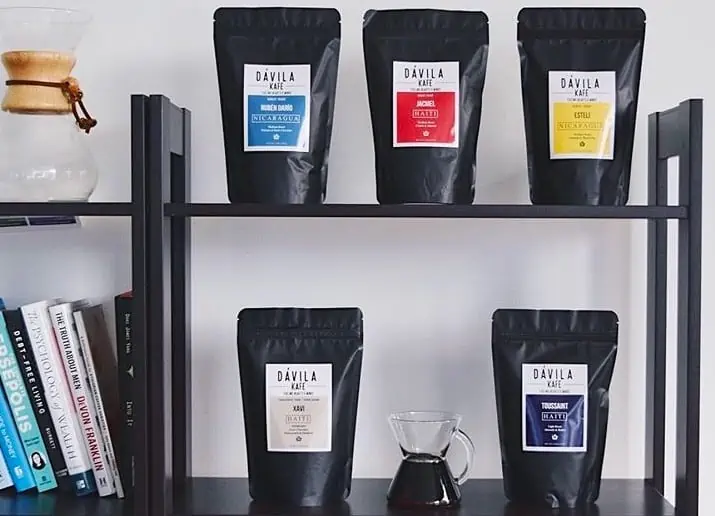
Davila Kafe coffee selection, including 94-point Nicaragua Esteli. Photo courtesy of Davila Kafe.
She and her husband and co-owner David founded Dávila Kafe to highlight coffees from Nicaragua and Haiti (origins to which they have family ties), “whose cultural contributions to the world of coffee have been, for far too long, overlooked and underappreciated.” Dávila continues, “Yet, to be Nicaraguan or Haitian is to have a direct link to the world of coffee by virtue of its importance in both countries’ cultural narratives. We believe that the overall lack of appreciation of coffees that hail from these two nations is correlated with, among other things, the lack of compelling representation given to their coffee products. This is why we are dedicated to shifting the narrative of both Haitian and Nicaraguan coffee beans wherever and whenever we can.” (We also review Dávila Kafe’s Haiti submission below.)
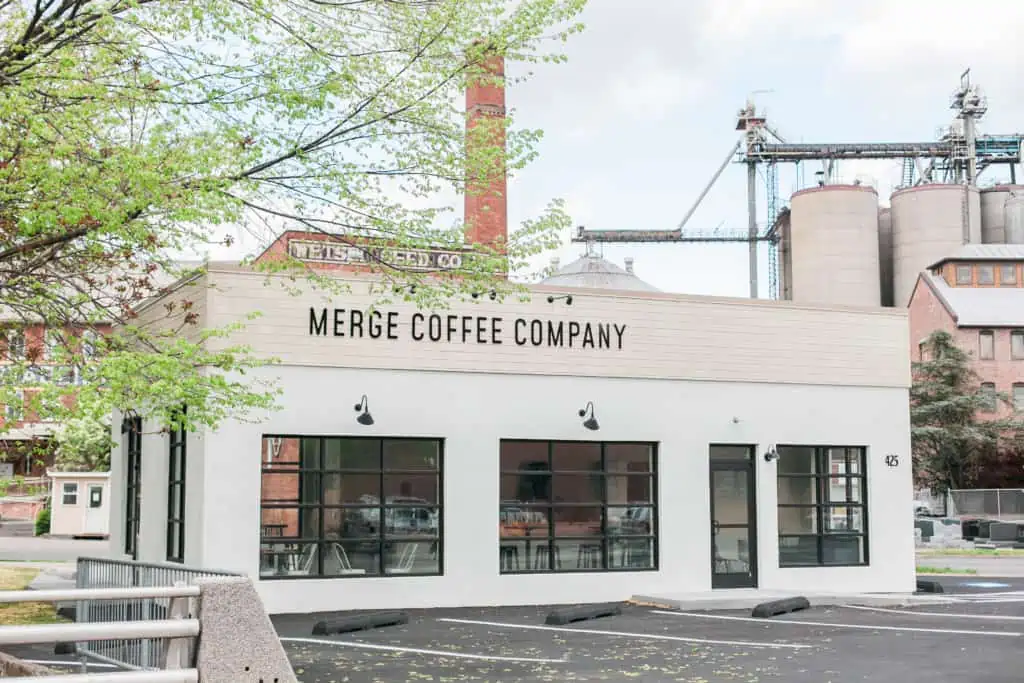
Merge Coffee Company location in Virginia. Photo courtesy of Merge Coffee.
Paul Bonds of BeanFruit Coffee submitted an exceptionally high-toned, juicy Colombia Finca El Roblar (94) that is a staple on its Jackson, Mississippi menu, while the remaining coffees that scored 94 are all Ethiopia naturals: Des Moines, Iowa’s BLK & Bold Limu Ethiopia Natural, Harrisonburg, Virginia’s Merge Coffee Company Ethiopia Gera Estate Natural, and Atlanta-based Portrait Coffee’s Ethiopia Guji Natural.
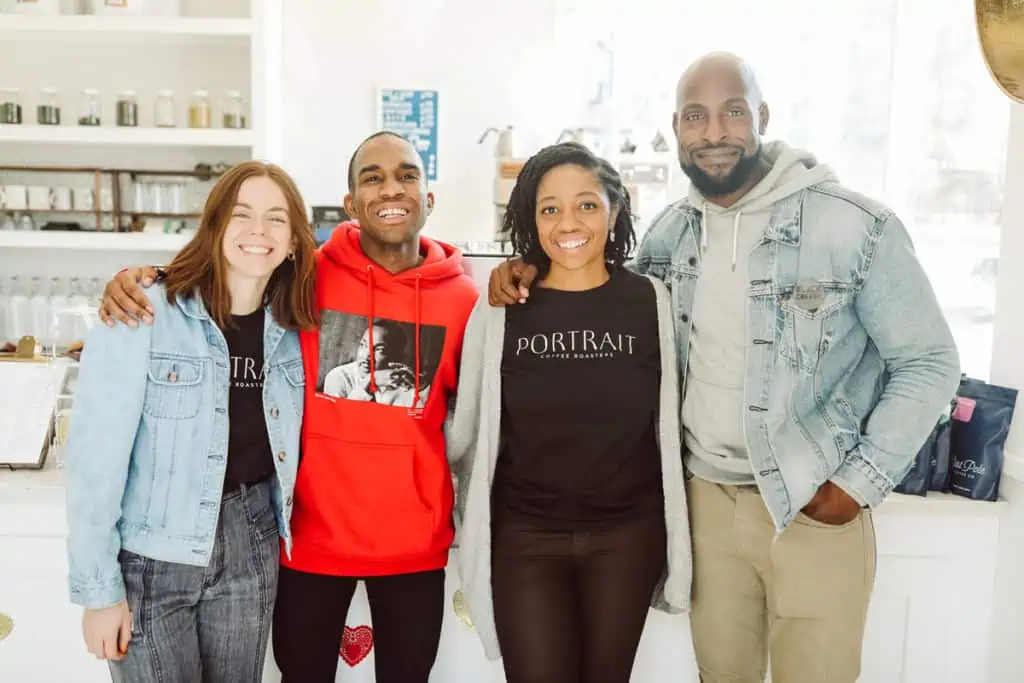
(Left to right) Full Commission coffee manager Brynn del Risco; Portrait Coffee founder Aaron Fender; team member Kiyah Crittendon, and founder John Onwuchekwa at a Full Commission pop-up. Photo courtesy of Portrait Coffee.
Hawaii and Sumatra at 93
Alicia, in particular, was taken with Rusty’s Hawaiian Ka’u Classic Medium Roast (93), the one coffee on this list that is grown, processed, and roasted by the same company.
Co-owner Ralph Gaston says, “The Classic series is built on a combination of the washed processing method and the Typica variety, which is the most prevalent coffee variety here on the Big Island. Our farm has a mix of “Old Hawaiian” Typica (from the trees originally brought to Hawaii from Brazil in the 1820s), and the newer version, which is Ka’u Typica (from the Guatemalan Typica trees that arrived in the 1890s). This style of coffee dates back to when Rusty and Lorie [Obra] founded the company, and it’s also the coffee we can produce in the biggest volumes — unlike some of our experimental lots.” This is, indeed, a classic Ka’u cup, nuanced, balanced and quietly complex, with an elegantly sweet structure and Meyer lemon-like acidity.
Candy Schibli’s Baltimore-based Southeastern Roastery submitted a Sumatra Blend (93), another classic profile with its paradoxically sweet-savory, spice-toned, richly earthy cup. Schibli’s chief interest in founding Southeastern Roastery in 2016 was to promote the cultural exchange, open dialogue, and collective creativity that coffee communion has historically nurtured, and this friendly Sumatra blend is an instant conversation-starter.
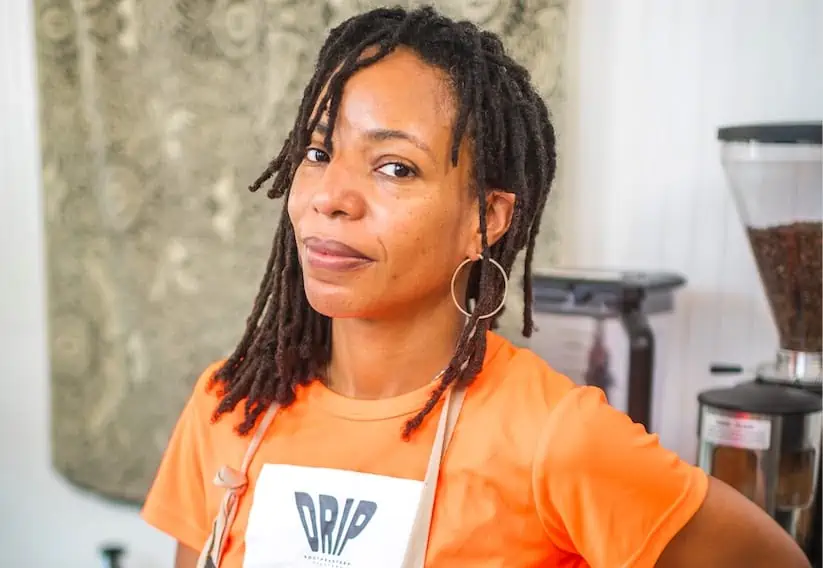
Candy Schibli of Southeastern Roastery. Photo by Rey Lopez.
Two Kenyas, a Colombia & a Tanzania at 92
It’s never surprising to see Kenyas crack any of our top-rated lists, and the two we review here — Kahawa 1893’s Safari Blend and RND’s (Roasters Next Door) Kenya Kapsakiso — demonstrate the range possible from this diverse-cupping origin. The former is crisply bright, floral-toned, while the latter is chocolaty, berry-driven and sweetly herbaceous.
Kahawa 1893 owner Margaret Nyamumbo is a Kenya-born, Bay Area-based third-generation farmer whose family is part of the Morumba Cooperative in Kisii where this lovely coffee was grown. Nyamumbo says, “I founded Kahawa 1893 to empower women farmers. In Kenya, over 90% of coffee labor comes from women, but since they do not own the land, they are not adequately compensated. Our goal is to close that gap, and we provide a QR code for consumers to tip the farmers directly.”
Roanoke, Viginia-based RND’s managing partner Quincy Randolph says of the Kapsakiso, “We submitted this coffee as a self-challenge to roast the Kenya darker than the majority of our other coffees, without masking or losing any of the subtleties within the coffee. It has enough nuance and complexity to satisfy the consumers looking for depth and excitement in their coffee, while still being approachable enough to those simply wanting a bold cup.”
Memphis-based Dr. Bean’s Coffee Roasters submitted a Colombia Huila Geisha Las Mieles (92), the one honey-processed coffee on the list, a deep-toned cup with notes of cherry, brown sugar, and pink grapefruit zest.
Red Bay Coffee’s East Fourteenth Street (92) is a Tanzania from a farm, Sweet Unity, that the Oakland-based roastery has been working with for years. The darker roast profile brings out the coffee’s dark chocolate and dried fruit notes. Head roaster Karla Mancio says of RBC’s flagship offering, “East Fourteenth pays homage to Oakland’s roots and the communities that RBC is proudly a part of. People in the community connect with the name and then get hooked on the deliciously smooth dark roast. This coffee has a little blackberry acidity that backs off and into a smooth dark-chocolate bitterness, which pleasantly dissipates into a warm, sweet, lingering feeling.”
Providing further background on the coffee’s name, Mancio adds, “East 14th Street, now renamed International Boulevard, runs through some of the most diverse communities in the Bay Area, communities that have their own unique preferences and buying power — communities that specialty coffee might once have overlooked. East Fourteenth offers an approachable roast profile for people who might not find sparkling acidity and overly fruity coffees, which have dominated the specialty coffee scene in this area, pleasing. Our intention is to provide a solid direct-trade, single-origin coffee that is reminiscent of the coffees our communities were previously used to, but with specialty coffee beans and the artisanship that BIPOC can also provide, given the opportunity — flavors of mom’s coffee pot, or a cafecito con leche.”
A Very Good Haiti at 90
One of the better Haiti coffees ever to cross our cupping table here at Coffee Review is the Dávila Kafe Jacmel, which Gaïna Dávila says is produced from one of the oldest coffee varieties to arrive in the Western Hemisphere. She adds that, “When we drink it, we like to think that we’re drinking a cup steeped in both excellence and history. Haiti is a treasure trove of historical narratives that has helped shape the world as we know it today and, in its infancy, coffee was a central player in each part of the story. The Jacmel beans deliver sweet undertones with a floral aroma combined with clean and crisp floral acidity. We love that it is both complex and balanced.”





